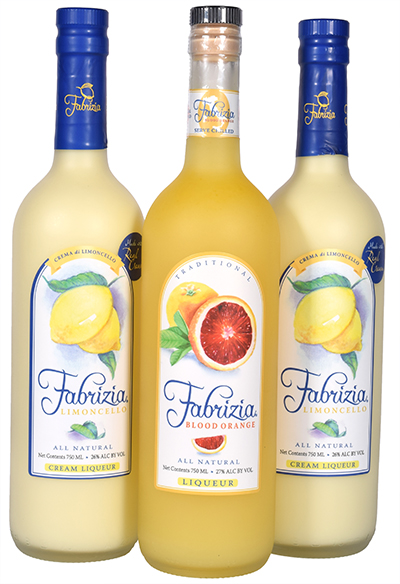
Phil Mastroianni, co-owner. Photo by Matthew J. Mowry.
Fabrizia Spirits in Salem recently launched a canned version of its Italian Margarita—a ready-to-drink cocktail of limoncello, lemonade and tequila—just in time for the summer season. Phil Mastroianni, co-owner and founder, expects the canned cocktail to bring the company a new level of success.
“It’s a more mainstream way for Americans to drink limoncello—in a cocktail,” Mastroianni says. “We make 500 cases every Tuesday and they run out.”
When Fabrizia launched in 2008, sales of bottled, all-natural limoncello reached $52,000. The company has continually added limoncello inspired products, including a cream limoncello, a blood orange liquor and the limoncello Margaritas, generating well over $1 million in annual sales to 16 states.
A family-owned business that Mastroianni, a former CPA, operates with his brother Nick, has found its sweet spot after hitting some sour patches over the years. Mastroianni, who defines himself as a proud Italian-American, began making limoncello for family and friends as a hobby after visiting Italy with his great aunt in 2003. Mastroianni invested $30,000 to launch the company, bottling his limoncello at nights and on weekends while working full time. And he deliberately chose Salem, NH, because, he says, startup costs were cheaper.
 “I thought we had the best tasting limoncello at the best price. I thought everyone in Massachusetts would switch to ours. It didn’t happen. It took us four months to sell the first batch of 135 cases,” Mastroianni says. After struggling for two years, he secured a contract with the NH Liquor Commission and only then did Fabrizia’s fortunes began to turn around.
“I thought we had the best tasting limoncello at the best price. I thought everyone in Massachusetts would switch to ours. It didn’t happen. It took us four months to sell the first batch of 135 cases,” Mastroianni says. After struggling for two years, he secured a contract with the NH Liquor Commission and only then did Fabrizia’s fortunes began to turn around.
A hallmark of Fabrizia’s products is they are all natural. It takes 300,000 lemons to make one year’s worth of product, Mastroianni says. He almost lost the business in 2015 when a lemon-grower in Chile changed to coating its lemons with a petroleum-based wax. The resulting batch of limoncello came out brown. “We had to throw away $20,000 worth of limoncello,” Mastroianni says, adding he learned an important lesson in making sure he better sourced his lemons.
Fabrizia is now growing with six employees and is seeking a larger facility in Salem. For more information, visit fabriziaspirits.com.

 Current Issue - April 2024
Current Issue - April 2024